|
"In an effort to achieve attention and focus, the ADHD brain intuitively and consistently searches for stimulation. When stimulation occurs and the brain is engaged, it has a better chance of being able to function. Where the brain turns for stimulation depends on personal preferences; what works for one person doesn't necessarily work for another."
Loving someone with ADD, Susan Tschudi (2012, New Harbinger Publications) My sister-in-law, who lives in Brazil, recently had her first baby. She and my brother-in-law are over the moon with this happy event. Every time they post pictures of my tiny nephew Gonzalo on Facebook or send them via text, I reminisce about when my first was born. There is something so magical and incredible about the first, though each subsequent time is incredible (my kids might be reading this, after all). I remember feeling so amazed that I created that perfect little being, and feeling overwhelmed with love and emotion, and wanting to just stare at him for hours. As a toddler, my son could play with one toy for hours, like his wooden blocks. He would build airplanes, cars, or boats and was very focused on whatever he did; he was a calm and patient baby. He self-entertained often. When he wasn't playing or reading, as soon as he could talk enough, he started asking us questions. Millions of questions.He was curious about everything. His questions ranged from "Where did water come from?" to asking all about the planets and solar system, tom when he was older, asking about the reproductive process. He was a sponge for new information. As he progressed through elementary school, he began to have trouble sitting school and focusing. My husband and I were surprised, because he had always been able to focus so well. Soon, the attention issues began affecting his behavior, and as the material he was learning became less creative, he started become bored and restless, and started to dread school. In fourth grade, he started to refuse to go to school some days. We had him evaluated and were blindsided by the diagnoses: ADD (with hyperactivity), anxiety, and severe depression. Severe depression was the most difficult part for us to understand; in fact my husband and I went from the therapist's office to a nearby bar for a beer the day we found out. Our son had always seemed to be a happy kid. But, the more we thought about it, the more it all made sense. And, as the psychologist told us, depression looks very different in younger kids than in adults. As we learned more about that and ADD, my husband began to realize that he probably had ADD as well; an evaluation confirmed his suspicions. The hyper focus on his interests and the impulsive behavior our son sometimes had began to make more sense to us, too. Our son has come a long way since 4th grade. As an eighth grader, he no longer refuses to go to school or acts out in school (except in the knuckle-headed way of middle school boys). However, he does not like school and I wouldn't say he is thriving - more like just surviving. He continues to be curious and smart and inquisitive - about the things he is interested in. As I learn more about ADD, I know that what does not interest my son is absolute torture for him to get through. I used to think he could "just do it" - just try harder! Do more work! Study more! Now I know that it's just not that easy for someone like him. I've learned to try harder to accept him just how he is - whether living up to that potential or not. Of course, his dad and I want him to try his hardest, to always do better, and to have goals in life. The journey might look different from what we expected, but in the long run I think he'll be successful and happier. My son's forte is technology - has been since he first got on a computer. For years, he has been the one we go to (his teachers, too) with computer questions. One of the projects he is working on now is developing a game with his friend. For someone who has difficulty with group work and doesn't have stellar grades in school, I was shocked to hear him trouble-shooting, brainstorming, and thinking out loud with his friend on the other end (each with their headsets). I thought about how amazing it would be for him to be in a learning environment that allowed him to really explore and use his energy and creativity to help his learning rather than hinder his progress. I don't blame his teachers, or his school - after all, he goes to the school where I work, and his teachers are my colleagues and friends. I don't blame teachers at all - our job is hard enough and we get blamed for too much already. But I do wonder, as we learn more about the brain and how kids learn, as we learn about ADD and other learning issues, shouldn't our leaders be helping to really transform education, to make it more interesting? Instead, it is being more standardized every day; it's a quest towards "sameness". Today we had a snow day in Massachusetts, like in much of the Northeast. When my son wakes up and before he takes his ADD meds is when he can be most impulsive. This morning it broke my heart when he said, "Mami, today I'm going to try to not have ADD, just so you know. Obviously he knows that he can't choose to have it or not, but the sentiment that made me sad. I went to find him a little later and told him that I loved him with or without his ADD and that he didn't have to try to change. I also told him that people with ADD are more creative and that is something he can take advantage of - one day. I can only hope he heard the message and internalizes.it. We are heading towards a 3 out of 5 people ADD family :-) and I'm learning to be more accepting and less critical. I think in the process, I've become a better and more empathetic teacher, too.
6 Comments
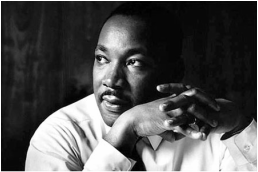 Today was a great day at school, filled with honoring Dr.Martin Luther King, Jr. and reflecting with my students on injustice and nonviolence. The day began with an all-school assembly about Dr.Martin Luther King, Jr.; as many times as I've heard his speeches, hearing them in a room full of middle school students and teachers felt different. The students were completely quiet and focused on the large screen in front (except for one or two - it IS middle school after all!). I got chills listening. After assemblies like this, though, I worry that my students are getting a shallow picture of who Dr.King was. It's always a challenge, too, because the population I teach often does not have the background knowledge about race issues in the U.S. Because of this, last week I started a unit on MLK, nonviolence, and injustice, and in class today we connected what the students have studied so far to the presentation about MLK. There were some interesting, funny, and eye-opening (for me) moments, as there usually are with my ELL students. In order to better explain segregation to the class, I told them that it was likely none of us would have been able to be in class together in the 1930's south. They didn't believe me. In my class, there is a Japanese student, a Cape Verdean student, a Colombian student, a Syrian-Austrian student, and a Puerto Rican student. They know enough about the Jim Crow south to know that it was mostly between Black and White people so the first thing they wanted to do was figure out who was darkest/lightest in the class. I told them that some people who looked whiter may have tried to blend in (or "pass") but that for many people anything other than White people were discriminated against. We talked about what the "Dr." in front of Martin Luther King's name meant. One student said he got that title because he helped people. Another said it was because he was a minister - and it wasn't until a little later that I realized he was translating it literally to the Spanish and thought he worked in a "ministerio", or a department as in "Department of State". When I explained to the class what a PhD is, they were all surprised by the meaning of "Doctor". As we talked about the details of MLK's life (they did some reading about him last week), one student mentioned that MLK had been assassinated. We discussed what that meant, because not all of them knew. Then one student asked why no one sought revenge for his assassination. Perfect moment to go back to the idea of nonviolence! I asked him what he thought MLK would have thought about someone using violence to get vengeance for his death; while he saw my point about it going against the principles of nonviolence, I wasn't able to convince him that it would've been wrong. At the end of the class, preparing them for the homework (a writing assignment: "What is your dream about injustice?"), we brainstormed possibilities for an injustice to focus on. One student mentioned "wealth inequality", and we talked about the 99% and the 1%. Another student said "President Obama!" as an example of someone in the 1%, but I explained to him that presidents actually didn't make millions. Every day I learn from my students - how to be a better teacher, how to explain things so they will really get them, how to change my teaching to adapt to each group I have, and how I can never assume anything about what they know or don't know. Unexpectedly, I got an award (my first ever!) over the weekend: the Norma Jean Anderson Civil Rights and Academic Achievement award, from groups in my town that organize a yearly MLK breakfast. I felt honored that on the weekend we honor him, I was getting an award for keeping his words and actions true in my teaching and my community. I shared it on Facebook because I know my mother is beaming with pride right now and I wanted her to see it publicly. Here it is again with the description below. Thank you Dr.King, for your legacy, your actions,your words, your heart and soul, and your life. And thanks Mami and Papi, for instilling in me a strong sense of social justice and supporting me in evreything I do. I love you! About once a month, I have one of those days where I am so mentally and physically exhausted from the school day that I come home and do one of 3 things:
1. flop on the couch and watch bad TV 2.cry 3.sleep Today was one of those days. In fact, today was a day for all 3. I flopped on the couch, cried, fell asleep, woke up and watched bad TV - in this case an extraordinarily long meeting of my district's school committee. Yes, I actually watch those. My family knows what to do in these cases by now. One of my them will make me tea, one usually brings me a blanket, one will massage my shoulders or feet. They are concerned but not overly - they know I'll be fine and am just letting off tension. It all started this morning, when everything was already stressful and confusing because of a snow day yesterday. The arrival of a new ELL student who walked with her mom in the freezing weather to school coincided with my middle daughter calling to tell me that my youngest did not want to get up for school. I spent over an hour with the new student because the guidance counselor was in a meeting, so I couldn't go to my inclusion social studies class; then I had to make arrangements for another class so I could rush home to check on my daughter (thank you Peter R., you are the best!). This was followed by 2 meetings to talk about different challenging things happening at school. In the scheme of things, it wasn't THAT bad. Could be worse, I guess. But sometimes, when I have one of these days, I wonder how I will be able to go in and teach the next day. It helps to make myself think about the good things about school. I think about the new student, and how lost she was today and how she will need help and guidance tomorrow. I think about the new units I'm rolling out, and how I'm excited about them even though it's a lot of work. And I think of my amazing, awesome colleagues, who keep coming in day after day, who joke and laugh with me in the hallways, who care deeply about their students, who will share nachos on a Friday and shake off the week with me. Thank you, fellow ARMS teachers. You guys rock. And family - you rock, too. At the end of my winter vacation, I finally sat down to do some work to prepare for my classes tomorrow. Instead, I started writing this blog entry when I realized I have no desire to plan. Planning will happen at some point - usually at around 8 PM Sunday night, as good as my intentions were to sit with my coffee and plan now at 10 AM. I plan to do at least 11 of these today. Feel free to add to my list!
1. Organize your Tupperware. 2. Look up random things on Google, like "uses for coconut oil" and "how to get rid of under eye circles". 3. Organize the linen closet. 4. Watch a "House Hunters" marathon. 5.Clean. 6.Call people you haven't spoken to in ages to wish them a Happy New Year, 7.Archive your emails until your inbox is empty (I LOVE an empty inbox). 8. Bake a cake for parents' anniversary, or just a cake for anyone. 9. Make list for husband of things to do tomorrow, since he has one extra day off (he shouldn't enjoy it too much, especially since we will all be back in school). 10. Make list of future blog post ideas. 11.Start making summer plans. 12. Cry, because your vacation is almost over. 13.Count the days until the next long weekend, the next vacation, and the vacation after that. 14.Pluck eyebrows. 15.Make sketches of house remodels you have always wanted to do. 16. And, the biggest time sucker of them all.......Facebook! |
|
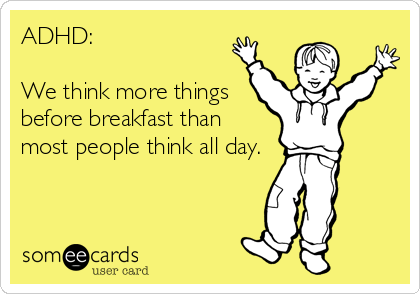
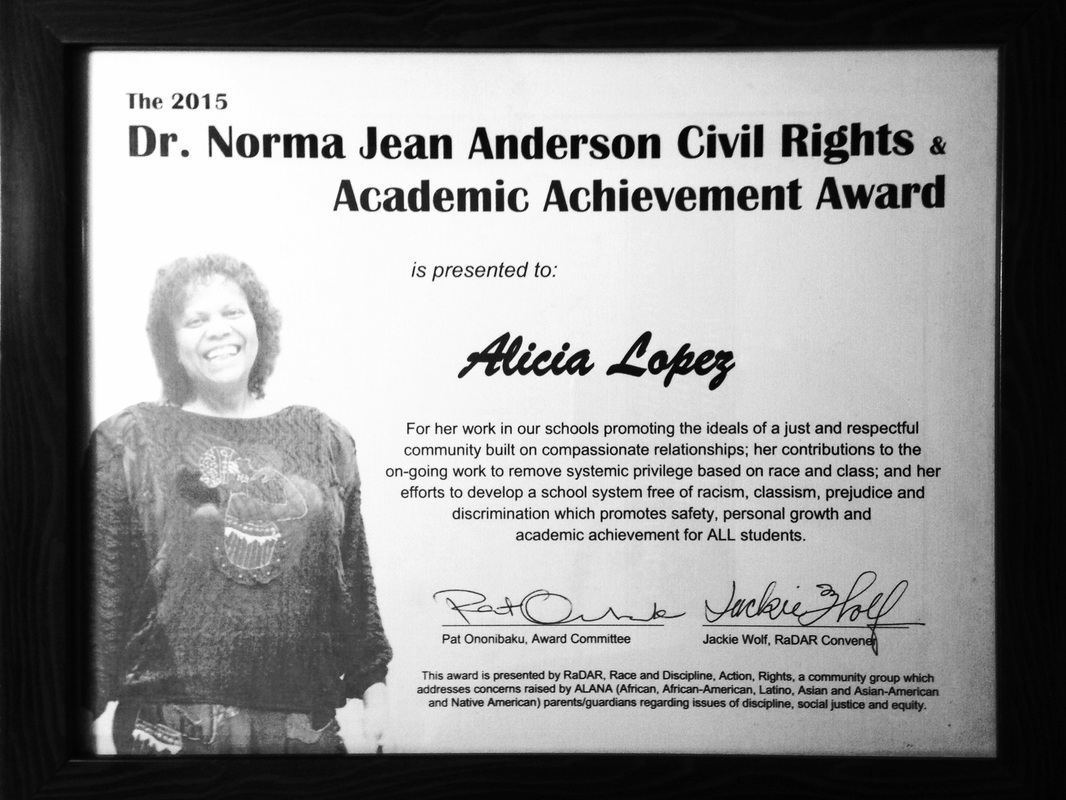


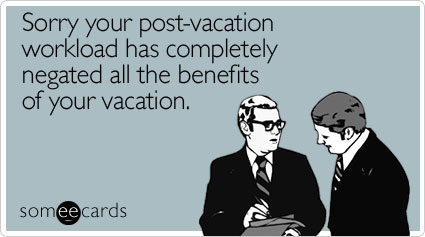
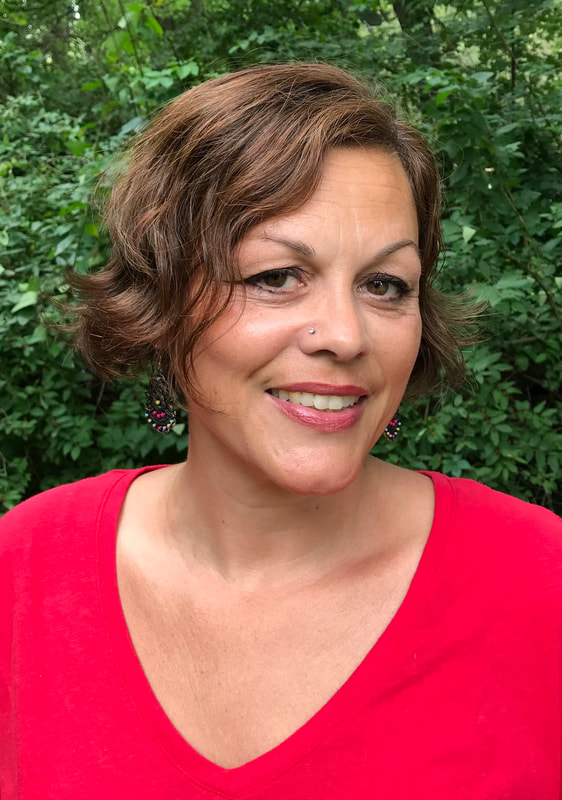
 RSS Feed
RSS Feed
